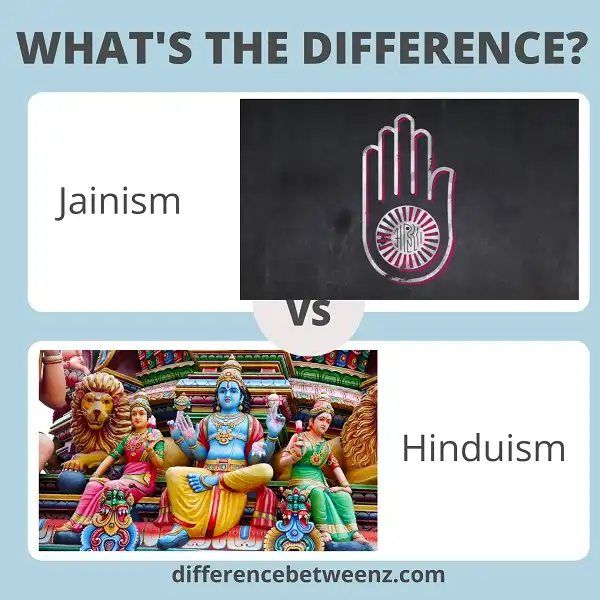Jainism and Hinduism are two of the most popular religions in the world. Though they share some similarities, there are also many significant differences between the two faiths. In this blog post, we will explore some of those differences. specifically, we will focus on the concepts of karma and reincarnation. We will also discuss how Jainism and Hinduism differ in terms of their views on God. Finally, we will consider the impact that these differences have on followers of each religion.
What is Jainism?
Jainism is a religion that originated in India. It is based on the teachings of Mahavira, who was born in the 6th century BCE. Jainism teaches that the soul is immortal and that the universe is infinite. Jains believe in nonviolence and self-control. Jain monks and nuns live simple lives and practice asceticism. Jains worship a number of deities, but they do not believe in a personal God. Jainism does not have a priesthood or formal rituals. Jains are divided into two main groups: the Digambaras and the Svetambaras. Jainism has about 4 million followers, most of whom live in India.
What is Hinduism?
Hinduism is one of the oldest religions in the world, and it has a rich and varied history. Hinduism is not a single creed or set of beliefs, but rather a complex and diverse tradition that has developed over thousands of years.
- Hinduism has no founder or central authority, and there is no Hindu equivalent of the Bible or the Koran. Instead, Hinduism draws on a wide range of sacred texts, including the Vedas, the Upanishads, and the Bhagavad Gita.
- Hindu beliefs encompass a wide range of philosophies, including pantheism, monotheism, and atheism. Hindus also believe in reincarnation, and that the soul passes through a cycle of birth, death, and rebirth.
- As a result of this belief, Hinduism places a strong emphasis on ethics and morality, as well as on the idea of karma, or the law of cause and effect. Hinduism is the third-largest religion in the world, with over 1 billion followers worldwide.
Difference between Jainism and Hinduism
Jainism and Hinduism are both ancient Indian religions. Jainism dates back to the 6th century BCE, while Hinduism is believed to have originated in the 2nd or 3rd millennium BCE. Jainism and Hinduism share many beliefs, including the concept of karma and the belief in reincarnation.
- However, there are also some significant differences between the two religions. Jainism teaches that all living beings are equal and should be treated with respect.
- This principle of ahimsa (non-violence) is at the heart of Jain ethical theory. In contrast, Hinduism holds that there is a hierarchy of castes, with some groups being considered more worthy than others. Jainism also places a strong emphasis on asceticism, or self-discipline, as a path to spiritual enlightenment.
- In Hinduism, meanwhile, various paths to liberation are recognized, including bhakti (devotion), jnana (knowledge), and yoga (physical and mental discipline). As these examples illustrate, Jainism and Hinduism are two distinct religious traditions with different beliefs and practices.
Conclusion
Jainism and Hinduism are two of the most prominent religions in India. Though they share some similarities, there are also a number of key differences between the two faiths. If you’re interested in learning more about either religion, or if you’re from India and want to know more about your own religious heritage, read on for a breakdown of the major distinctions between Jainism and Hinduism.


